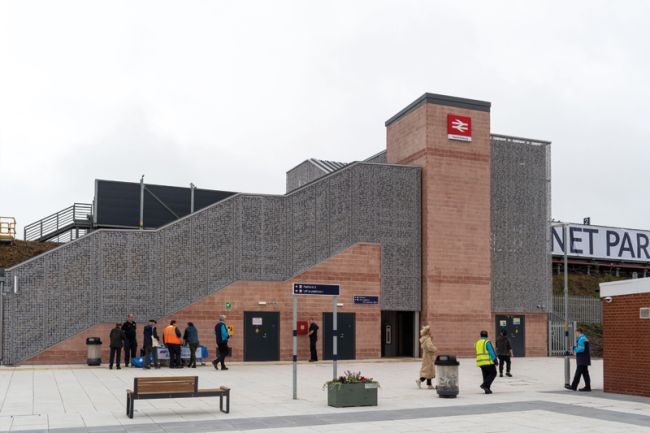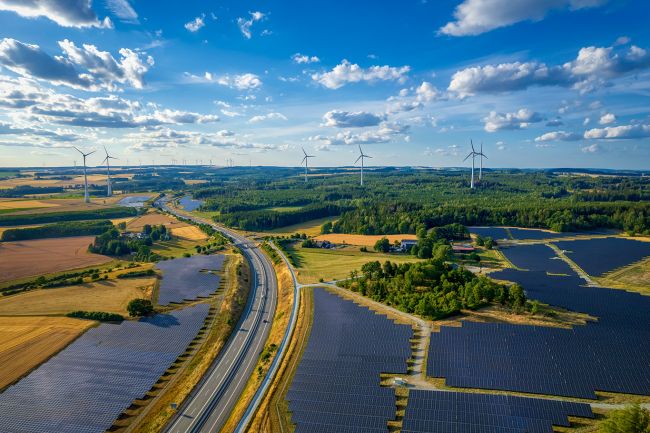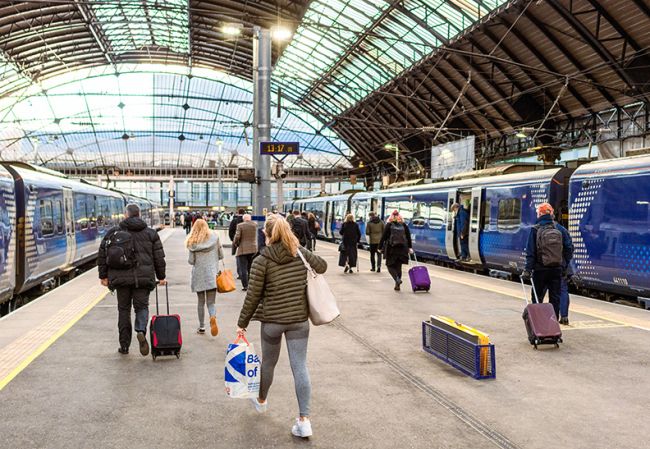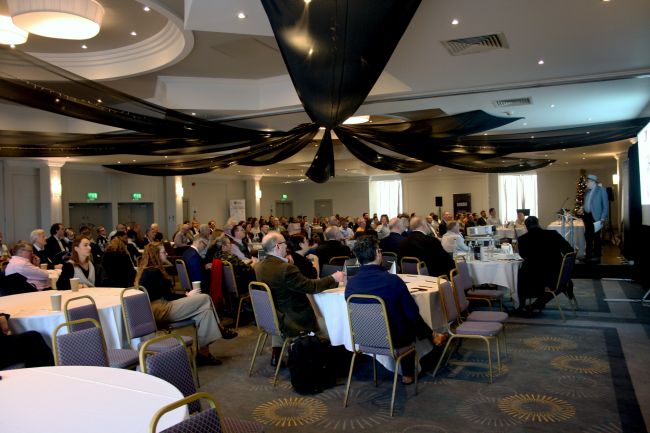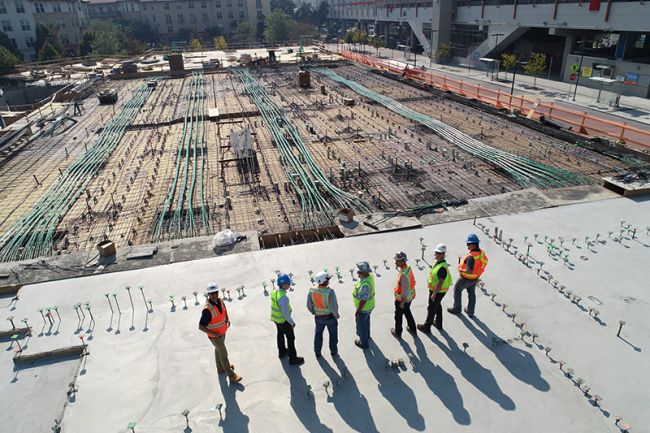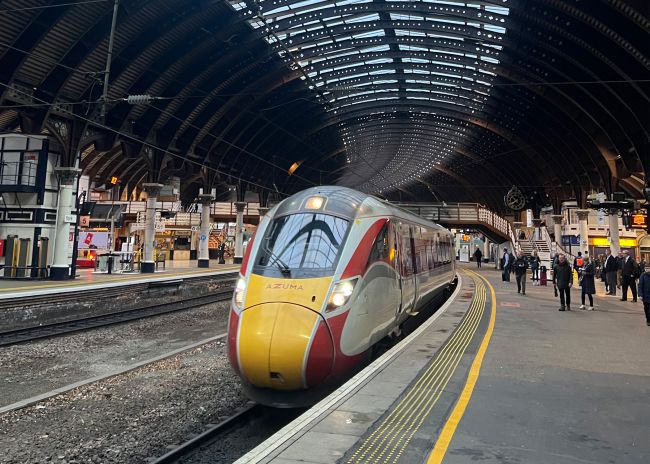Taking stock – the crisis and imperative for change in Britain's railways
UK rail is struggling across a number of fronts. Passenger numbers and revenues have not recovered post-Covid.

Welcome to the 'Recalibrating Britain's Railways' event series—a thought-provoking journey to help shape the future effectiveness of the railway.
Today’s tough realities
UK rail is struggling across a number of fronts. Passenger numbers and revenues have not recovered post-Covid, and like-for-like revenue at end of March 2023 was c.72% of pre-pandemic levels.
There is a hole in the industry’s finances with funding constrained. CP7 assumes 11% less expenditure on core renewals for Network Rail, and DfT is seeking year-on-year efficiency savings from operators through its Annual Business Planning process. The RNEP pipeline has not been updated since October 2019, leaving future enhancements uncertain, meanwhile passenger confidence is low due to a mixture of industrial action and mediocre operational performance across many parts of the network.
It is clear that against this backdrop, we need to reconsider our contemporary railway paradigm and the historic approaches we can deployed, but how can we do it?
The full picture: Impending risks and current issues
The current situation is made worse by Britain’s political and economic context.
Government funding is constrained across the board and there remains material concern as to the state of the economy. The battle to tame inflation continues as the cost-of-living crisis sees household budgets strained even further over a year on from Russia’s invasion of Ukraine.
The natural cycle of political rhetoric and action for a general election (rumoured for May or October 2024) means the Westminster politics is stalled, while elsewhere the Metro Mayors prepare for their own campaigns in May 2024. This is not an opportune time for elected decision makers to face hard truths or be handed sensitive policy choices.
Public feeling can prove to be strong with over 600,000 consultation responses to the proposal to close ticket offices earlier this year, compounding nervousness around such judgement calls and generally denting confidence for radical action.
The good news is that we’re heading to a Control Period settlement for Network Rail, arguably more benign than we expected. However, both ORR and Network Rail agree that there is increased risk to operational performance over the next five years and the potential for some capability degradation as some condition-based renewals are deferred.
With the Rail Transformation Programme ambitions arguably dimmed by the absence of energetic political support, particularly from the Treasury and No. 10, the industry needs to find motivation and bandwidth in the short-term to drive forward a better future.
It’s not all bad: Opportunities for rail
Despite this challenging landscape and the risks ahead, it would be wrong to be a rail pessimist. The last few years have seen some significant investment in both new and existing infrastructure and there are some great opportunities in store for Britain’s railway.
- HS2 Phase 1 is 40% complete, and despite the well-publicised challenges at Euston should be operating within the next decade
- The railways in the North of England are seeing substantial investment, including the Transpennine Route Upgrade, whilst in Wales, the Transport for Wales-led reinvention of the Cardiff Valley Lines continues to progress tram-train technology to deliver their metro aspirations
- Digital deployment is underway, including rolling out ETCS on the East Coast Main Line through Network Rail’s Digital Rail Programme, and the industry’s ticket retailing transformation continues with further expansion of pay-as-you-go
- New stations are opening, including Reading Green Park, Marsh Barton and Thanet Parkway, and stronger connections with the wider transport system are materialising such as the Bee Network in Greater Manchester
Realising the benefits from the significant time, cost and energy put into such initiatives will need assured decision-making in the near-term. We have learnt to our peril that major interventions and changes on Britain’s railway network can and do go wrong.
Playing to our strengths: How to make the most of rail in the future
Too often, the debate centres around what rail does badly, or the negative impact of proposals for change.
Rail ought to be the solution to many of our transport problems. Rail is the best mode by far when moving heavy, bulky goods or high volumes of passengers. Rail offers fast, low carbon transit (10 times less carbon than car travel or 13 times less than the equivalent flight between London and Edinburgh). Britain’s railways are still bigger than they were at privatisation 30 years ago, with twice as many passengers using more stations, more network, more services and more capacity.
We need a positive vision for the future. We need to question how rail is incentivised, how it operates, and how it engages with its customers, funders and stakeholders. How rail can grow where market opportunities are profitable? How rail can operate with improved efficiency? How rail can secure more investment in assets and new technology? How rail can tell its own story?
Steer is pleased to be delivering a series of events this October to explore these very questions by considering a new paradigm for rail and what that could mean for its management today. Across three events in three major cities across the UK – Birmingham, Manchester and London – we will examine both the contemporary state of rail and how we can work towards a greener, better-connected, and more profitable future for Britain’s railway.


